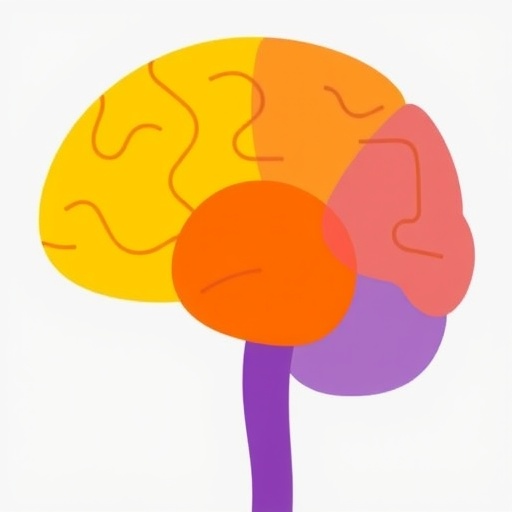In a groundbreaking new study poised to reshape our understanding of cancer’s cognitive fallout, researchers have shed light on the profound effects colorectal cancer (CRC) and its chemotherapy treatment have on brain function. Although cognitive impairment has long been recognized as a complication for cancer survivors, this comprehensive neuropsychological assessment offers some of the most definitive evidence yet on how CRC patients grapple with deficits in cognitive flexibility, memory, and attention.
The study carefully evaluated 58 colorectal cancer patients in close temporal proximity to completing chemotherapy—within a four-week window—to capture acute cognitive changes. These participants were measured against a control group of 32 healthy individuals matched for age and education, ensuring results focused squarely on cancer-related cognitive decline rather than extraneous factors. Patients with pre-existing cognitive disorders, brain metastases, or medication influences that might confound cognitive ability were systematically excluded, sharpening the study’s precision.
Cognitive performance was assessed using an array of validated neuropsychological instruments. Among these, the Total Learning Score gauged patients’ acquisition of new verbal information, while the Long-Term Memory Score measured retention over time. The Trail Making Test A and B evaluated visual attention and executive control by timing mental flexibility during task-switching, and the Stroop Test challenged cognitive processing speed and inhibitory control.
The findings emphatically demonstrate that colorectal cancer patients exhibited significantly impaired cognitive functioning in key domains compared to healthy controls. Most striking was the reduced Total Learning Score, pointing to a stark deficit in the ability to assimilate new information. This kind of learning impairment can severely undermine everyday functioning, from remembering instructions to problem-solving in complex situations.
Beyond learning, tests that examine executive function and attention also revealed substantial declines. Cancer patients took longer to complete the Trail Making Test both in sections A and B, indicating not only slowed processing speed but also compromised cognitive flexibility—the mental agility to switch between tasks or shift thinking strategies. Such deficits may explain the often-reported “brain fog” or difficulty concentrating many patients experience post-treatment.
Even the Stroop Test, a hallmark of executive control requiring the suppression of automatic responses, showed delays across all measured times for the CRC group. This suggests impairments extend into inhibitory control and processing efficiency, essential elements of higher-order thinking. These cumulative challenges hint at a broader disruption of neural networks orchestrating cognition.
Intriguingly, subgroup analysis revealed that patients diagnosed with stage IV colorectal cancer faced even greater cognitive hurdles. Their performance on learning and task-switching metrics was markedly lower, highlighting how disease severity might parallel neurocognitive decline. These findings raise critical concerns about the needs of advanced cancer patients, who may require additional cognitive support during and after treatment.
Conversely, the study found no significant differences between cancer patients and healthy controls in sensory perception or long-term memory retention. This nuanced dissociation suggests that chemotherapy’s neurotoxic effects might selectively impair certain brain functions while sparing others, proposing a targeted vulnerability within the cognitive architecture. Such insights could guide targeted rehabilitation strategies to bolster affected domains.
Importantly, this prospective study’s design—testing shortly after chemotherapy completion—provides a snapshot of cognitive health at a pivotal recovery phase. This timing offers a rare window into the neurotoxic aftermath, emphasizing the need for timely neuropsychological screening and interventions within oncology care protocols. Early identification can help mitigate longer-term cognitive disabilities that hinder quality of life.
The neurotoxic mechanisms behind these cognitive deficits remain a focus of ongoing research. Chemotherapy agents, while life-saving, may cross the blood-brain barrier or induce systemic inflammation, oxidative stress, and white matter changes, all contributing to neural dysfunction. CRC patients add complexity with possible nutritional deficiencies and psychosocial stressors further influencing brain health.
This extensive assessment underscores how chemotherapy’s impact transcends physical side effects, infiltrating cognitive domains vital for independence and productivity. Given that colorectal cancer ranks among the most common malignancies worldwide, the public health implications are vast—cognitive rehabilitation should emerge as a standard component of survivorship care plans.
Furthermore, these findings propel a call for developing neuroprotective strategies to shield the brain during cancer treatment. Pharmacological agents, cognitive training programs, and lifestyle modifications such as aerobic exercise and mindfulness might hold promise. Integrating these approaches could revolutionize both patient outcomes and long-term functional recovery trajectories.
In sum, this study provides compelling evidence that colorectal cancer patients, especially those with advanced disease, face measurable cognitive impairments following chemotherapy. Learning capacity, attentional control, and cognitive flexibility suffer most, while sensory and long-term memory remain relatively intact. Oncologists, neuropsychologists, and caregivers must recognize and address these challenges to improve patients’ holistic wellbeing.
The collaboration behind this research marks a crucial step forward in decoding the neuropsychological sequelae of cancer treatment. Future multinational cohort studies with neuroimaging and molecular biomarkers will be essential to unravel the full scope and mechanisms of chemotherapy-induced cognitive impairment. This will ultimately enable precision interventions tailored to patient-specific risks and resilience profiles.
As cancer care evolves into survivorship medicine, embracing cognitive health as a fundamental outcome metric will enhance patient-centered care. This study shines a spotlight on the invisible yet impactful cognitive battles faced by colorectal cancer survivors, inviting renewed efforts for comprehensive assessment, monitoring, and remediation.
In recognizing cognition as a critical dimension of cancer recovery, this pioneering research galvanizes a multidisciplinary dialogue on safeguarding neurological integrity amidst life-saving therapies. It emphasizes an urgent need for awareness—both in the clinic and society at large—to support survivors navigating the formidable challenges of cognitive decline.
This neuropsychological inquiry not only advances scientific knowledge but also fuels hope by identifying targetable impairments and illuminating paths toward cognitive rejuvenation for colorectal cancer survivors worldwide.
Subject of Research: Cognitive impairments, particularly cognitive flexibility, memory, and attention, in colorectal cancer patients following chemotherapy.
Article Title: Cognitive flexibility, memory, and attention in colorectal cancer: findings from a comprehensive neuropsychological assessment
Article References:
Goktas Aydin, S., Ozguzel, B., Bayramova, B., et al. Cognitive flexibility, memory, and attention in colorectal cancer: findings from a comprehensive neuropsychological assessment. BMC Cancer 25, 1447 (2025). https://doi.org/10.1186/s12885-025-14732-6
Image Credits: Scienmag.com




